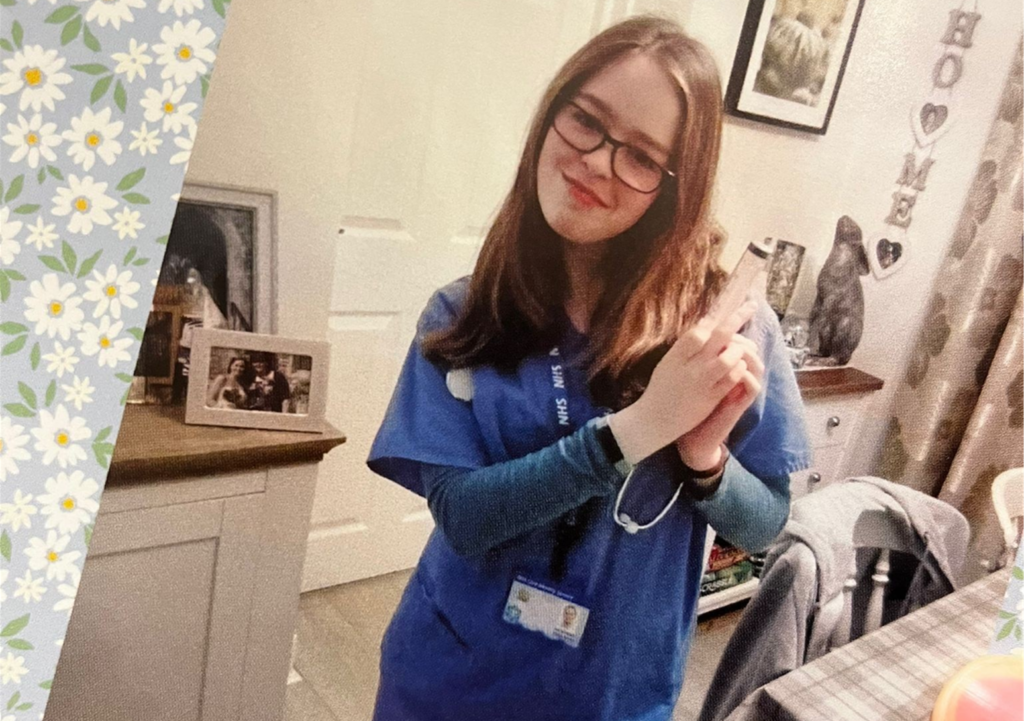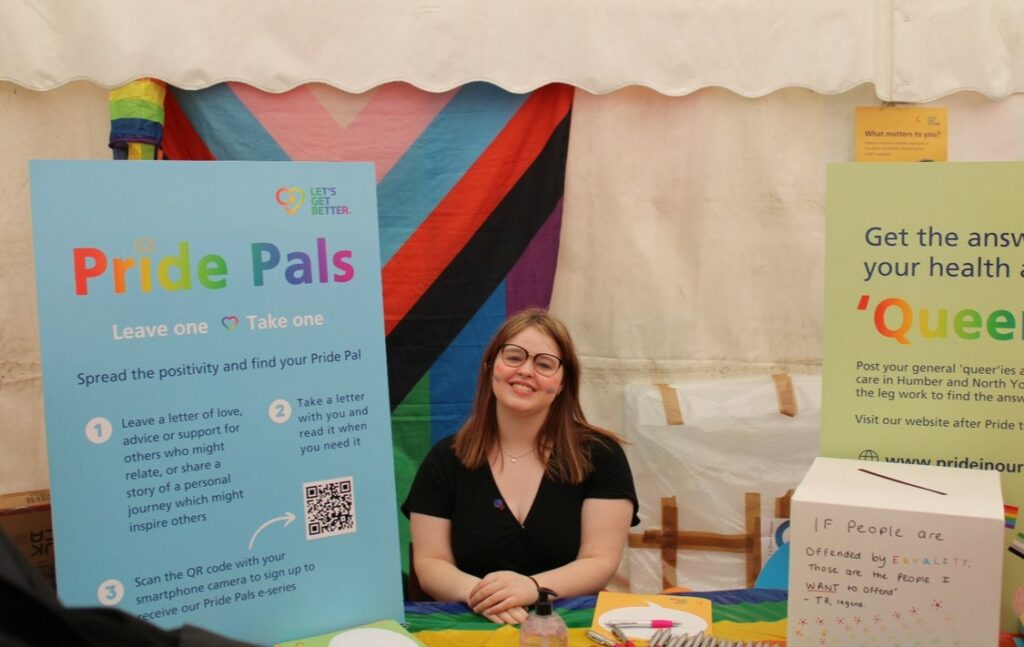The theme for UK Disability History Month (UKDHM) 2023 is disability, childhood and youth.
In this blog, we hear from Jess, a digital communications apprentice at Hull University Teaching Hospitals NHS Foundation Trust (HUTH)..
Trigger warning: This blog discusses eating disorders and suicidal thoughts.
#hellomynameis Jess and I’m a digital communications apprentice at HUTH. I’m neurodivergent, laughably embarrassing, clumsy, creative and proud to be ‘different’.
Aren’t we all ‘different’ really?
I was nine years old when I was first exposed to the idea that I was ‘different’.
I was loud, constantly in trouble at home, arguing with my peers at primary school and achieving really, really well. I remember that specific day where my primary school teacher had written about me: “Jessica has a bright mind and a brilliant ability to write stories.” I remember feeling so proud, so noticed and so ‘normal’.
That feeling stuck with me and drove me to strive every single day to feel it again – to achieve academically so I could feel ‘normal’. This quickly turned into a competition that I created with myself that became a downward spiral.
I think that it was this constant strive to achieve that made me want to go into healthcare. Growing up in a family that is quite NHS oriented (my parents being nurses) meant that going into an organisation as powerful as this felt almost pre-determined.
I wanted to make them proud.

I threw myself into my school work, desperate to be seen but getting nothing out of it in the way of comfort or reassurance. By the age of 14 I had burnt out, I had nothing left. I’d chosen subjects that I thought would help me choose medicine as a career as a way of control, but this felt empty, I felt empty.
I developed an eating disorder and had convinced myself that if I didn’t pass a subject, I wouldn’t eat a meal. This fixation on achieving had shifted from academic progression to extreme weight loss and no matter what people said, I felt proud at the time, noticed, ‘normal’.
My life changed when I got admitted into eating disorder recovery. I was diagnosed with anxiety and depression with strongly suspected neurodivergence. I was moved to home schooling as a way of removing the comparisons with my peers that fuelled my eating behaviours.
I fought this profusely. I hated it. My control was gone, my peers were gone but my weight was back. I was so scared and I was suicidal. I didn’t want to be here anymore and then I met my current partner, R.
R saved my life.
We helped each other and bonded over that loneliness we both drowned in. It was at that point that he helped me realise that maybe there was something more coming into play, something neurodivergent.
I invested the last that I had into researching. I started correlating some of my symptoms in childhood to that of a neurodivergent child and I found the missing piece of the puzzle – it was inside me all along. I’m autistic and I have ADHD.
“My disability doesn’t define me, it enhances me.”
Jess
I got help and I began to reconstruct my identity. I realised that medical school wasn’t what I wanted, but I did want to help people. But was nursing for me?
I went back to education to complete my A-Levels, but that old pressure surfaced. I didn’t want to go back to where I’d come from.
I tried an apprenticeship at an estate agency and felt valued and supported, but something was missing… and then I found my current digital communications apprenticeship at HUTH.
I decided to follow my heart.
Since joining HUTH I’ve worked on so many different initiatives that help people – I launched the Pride Pals scheme at Hull Pride this year and I’ve championed kindness and acceptance in everything I’ve touched.

I joined the Trust’s Disability and LGBTQ+ Staff Networks and I felt like I’d found my clan. I met like-minded people and I felt seen, loved and valued.
This UK Disability History Month, I feel empowered to tell my story. I feel grateful for this opportunity to introduce myself as Jess who has autism and ADHD, because my disability doesn’t define me, it enhances me.
I’m now 18. I’m still young, but I feel like I’ve learnt a lifetime of lessons. I’m grateful for having lived these experiences, because they’ve moulded me into the person I am now. It’s taken a good while to accept who I am, and I’m getting closer to it every single day.
I feel so proud, noticed, but not ‘normal’ anymore…I feel me.
So I’d encourage colleagues working in health and care to not shy away from difference, to embrace it in all its diverse glory. To join a staff network if you’re feeling alone, to find that space that values you, just as you are. Because we are all ‘different’, really, and difference is a beautiful, wonderful and fascinating thing!
If you or someone you know is affected by the issues discussed in this blog, please find details of services that can support you below:
- BEAT
- TalkED
- Daisy Chain
- Details of local mental health crisis support services
- Humber and North Yorkshire Resilience Hub
You can also find details of local support services for disabled children and young people, parent / guardian carers and disabled parents on our UKDHM website page.
You can find out more about UK Disability History Month (UKDHM) and access our downloadable resources, book onto an event or browse local support services on our UKDHM page.

